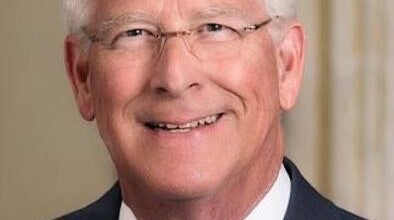The rightness of right in the US
Published 3:21 pm Friday, May 6, 2016
By TJ Ray
Many, many moons ago a group of folks decided they’d had enough of their king. So they up and revolted and started a new world, a world of equality and opportunity. Of course, as with any human endeavor, this one had flaws. And it was the work of many generations before some flaws were sorted out by sharing more opportunity with groups within the greater group.
In the beginning there were the first great rights, the Bill of Rights. In time the word became right. And in more time more groups asked for more rights. When they weren’t granted handily, people demanded them, in essence revolting against the land that had already revolted against the king. During the middle of the century there was the great civil rights uproar. Out of that movement came some success, but more importantly a thirst for more rights was whetted. First there were women, who knew that the fine words “All men are created equal” clearly didn’t include them. Next were the handicapped, who knew by painful experience that the world was built without disabilities in mind. And in a spurt, rights fights came from all sorts of minority groups: Indians (or Native Americans), ethnic groups, senior citizens and animals.
As new rights became the law, the land changed, sometimes in the shape of wheelchair ramps, sometimes in wrinkled faces and gray hair on clerks in fast-food chains. The rights of citizens even extended to boat people and others who weren’t U.S. citizens.
The cost of their maintenance was borne by real citizens. But more than physical conditions were transformed: so too were the attitudes of the people. The increase of rights to one group sometimes matched the diminution of rights for another. And all our lives changed. The case had been made that almost any vocal and persistent group could claim a “right”— essentially create a right. Enough pressure and enough friction usually legalized the new right.
And so it came about that everyone became so nervous about violating anyone’s “rights” that anything — be it the most outrageous behavior — became our way of life. Academic courses and dictionaries were rewritten to suit new perceptions. Behaviors that had been defined for centuries as unacceptable (or even pathological) were blessed with acceptability. The litany of illnesses that have been sanitized would be long and depressing. First, groups of advocates shouted, “What we’re doing is OK!” Their pressure made public officials antsy, and they began to fudge and say, “Well, OK, just this once.”
And finally enough anything-goes folks got control of higher education to lend an intellectual patina to this new world order — which is really nothing but a facade that asserts that anything goes. And ultimately finally, churches got around to recanting the damning they had done since long before the writing of the New Testament.
Recently a man persuaded a district court to ban the recitation of the “Pledge of Allegiance” in school because it “made his daughter feel like an outsider.” An article in Reader’s Digest reports the trend in education to downplay, even countenance, cheating because to expose it would mean psychological or social difficulties for the culprits. The author of an article in the Chronicle of Higher Education concluded, “[W]e risk becoming the enemies rather than the mentors of our students; we are replacing the student-teacher relationship with the criminal-police relationship.”
And in one state the literary passages in the standardized tests administered in public schools have been expurgated to remove any terms that would give offense to anyone.
The quintessential nature of our grand republic has been the notion of constitutional rights. Suddenly the most liberal among us are becoming the most repressive. To believe in everything is to believe in nothing. To stand for everything is to represent nothing. To share all cultures is to have no culture. In the ’70s many social engineers advocated the “I’m OK; you’re OK” tenet. If I’m OK and you’re OK and all God’s chillun’ are OK, can anything actually be OK? So what’s it all about, Alfie? It’s about everybody being allowed to do anything and claim anything. It’s about everyone standing for everything — which is the same as standing for nothing. It’s probably about the end of the American experiment.
TJ Ray, a retired professor of English at the
University of Mississippi, can be reached by email
at tjmaryjo@bellsouth.net.





